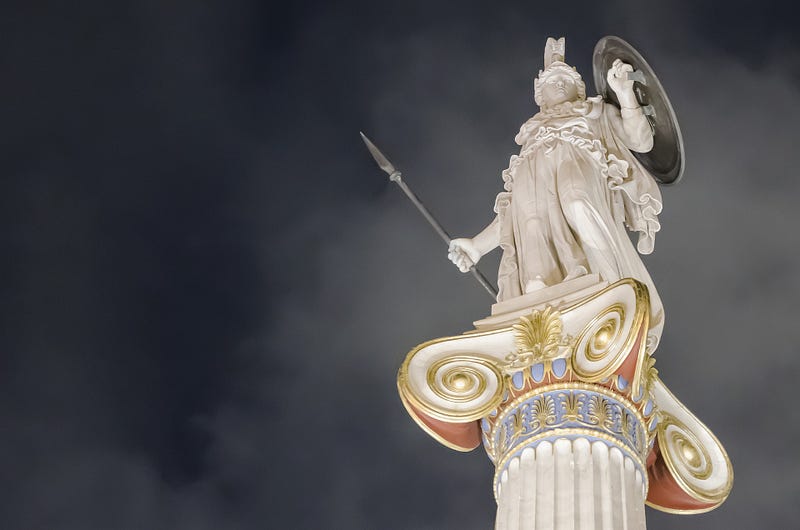5 Books to Get You Started with Greek Mythology

At some point in your life, you probably didn’t even realize you were referencing Greek mythology. Your vices can often be expressed as your “Achilles Heel.” It’s a long-standing example of how ancient poetry is now a part of modern-day literature. If you’re curious about why people are still using mythological anecdotes, it’s because some of the earliest forms of storytelling come from Ancient Greece.
Zeus. Medusa. Pegasus. Gods vs. Titans. They’re all stories from eastern civilization’s early form of storytelling. The stories feel like a fever dream, which can cause you to scratch your head at the imagination of early poets.
Nonetheless, you probably experience references to Ancient Greece without even knowing it. Just look at any Marvel movie. Thor has the strength and powers that feel quite similar to the god of gods in Greek mythology — Zeus.
The combination of heroic figures and extensive literature makes it easy to continue the fun aspect of storytelling through a mythological lens. The stories are derived from various texts dating back to around 700 B.C.E.
To understand the universe of Greek mythology, you’ll need to start with a few of my recommendations to grasp the vast history of Ancient Greece. The links below are affiliate links.
1. ‘Mythology: The Timeless Tales of Gods and Heroes’ by Edith Hamilton
This might be the #1 recommended book for anyone interested in Ancient Greece. The book was published in 1942 and continues to be a starting point for people interested in Greek mythology.
The book is also referenced in Mythos by Stephen Fry as he derived influence from Edith Hamilton.
2. ‘The Odyssey’ by Emily Wilson
I’ve written about The Odyssey in other Greek articles because there are numerous references still used today. You might have read The Odyssey in college as it’s a popular book among academics.
This translation of the ancient epic is very recent. It is also the first version to be translated by a female author. If you’re looking to start a Greek mythology journey, reading The Odyssey is a must to understand the background of other heroes and gods.
3. ‘The Iliad’ by Robert Fagles
If you’re reading The Odyssey, you’re going to have to read The Iliad. The two epics are often grouped together in deluxe sets. Since my favorite translation of The Odyssey doesn’t have a pairing (hint: Emily Wilson is set to publish it soon) you’ll have to check out another popular translation.
The Iliad is a story of Achilles and the battle of Troy. It predates The Odyssey and characters from The Iliad are referred to in The Odyssey — say that 10 times fast.
4. ‘Mythos’ by Stephen Fry
If you’re not into reading metered poetry like The Odyssey, you can opt for a lighter dramatized version of the events.
Stephen Fry did an amazing job blending humor and fiction into the early stages of Greek mythology. There are really helpful footnotes in each chapter to explain the situation and characters involved in the story. I read Mythos after knowing the epics and found it digestible and better than reading the ancient epics in-depth.
5. ‘Heroes’ by Stephen Fry
This is the second volume in Fry’s series of Greek mythology books. This time, Fry fast forwards later in time past the creation of gods and focuses on the world of mortals.
Heroes in the mythological sense are half-mortal. They are not divine (immortal) like gods, but at some point, they were produced by the love of a god and a mortal. The mixture of gods and mortals created people like Achilles and Heracles.
It’s another beautiful take on the ancient epics by Fry. It’s really easy to read, and if you’re into audiobooks — Fry narrates them himself.
When I began reading about Greek mythology, I didn’t know where to start. This list should get you started on the essentials of Greek storytelling. Once you master the basics, you can branch out into adaptations and deeper analysis of Ancient Greek poetry.
